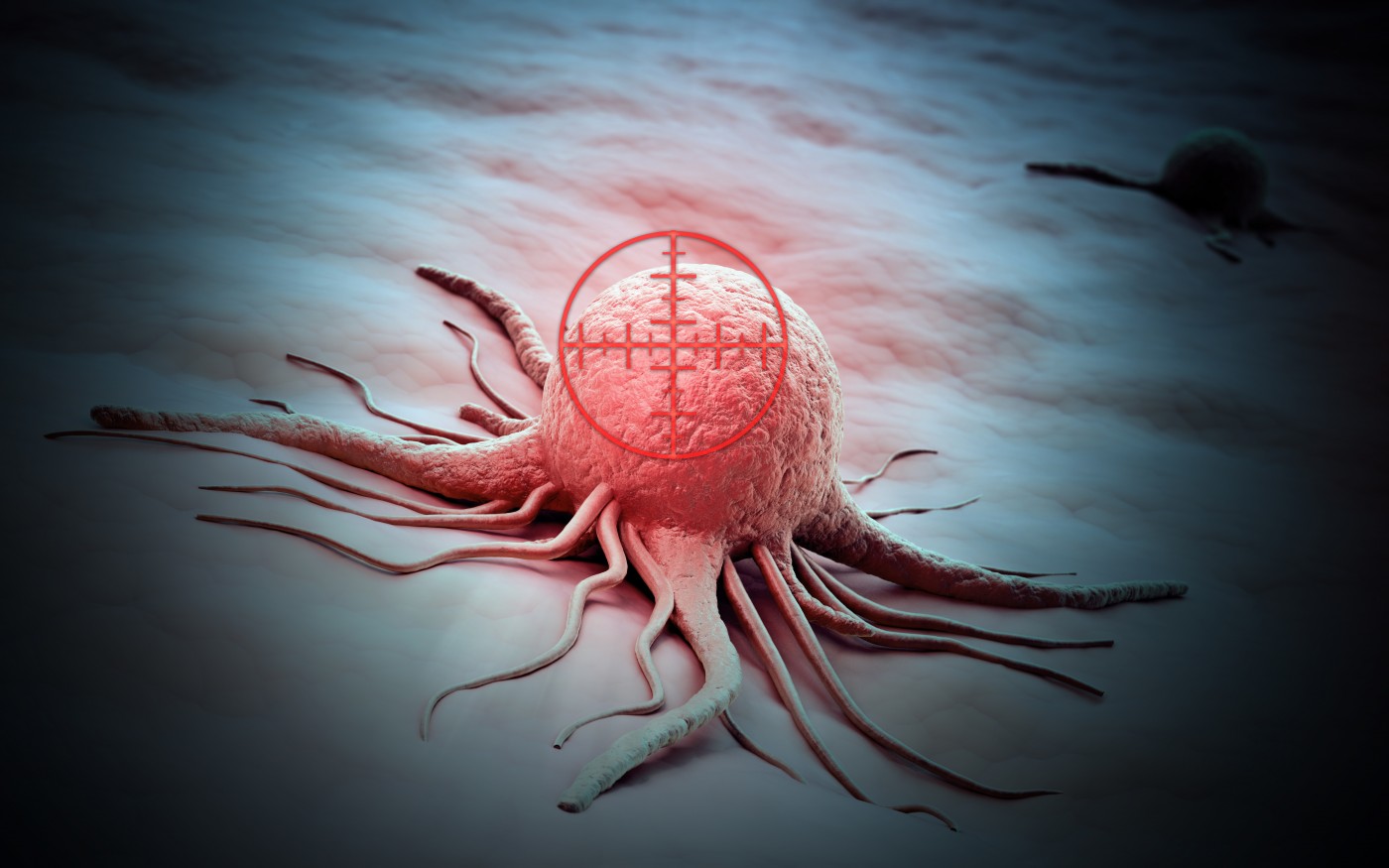A clinical trial funded by Cancer Research UK indicates that a drug combination of lapatinib, a protein tyrosine kinase inhibitor, and trastuzumab, a monoclonal antibody, before surgery can quickly shrink and even destroy tumors in women with HER2-positive breast cancer. The results were presented earlier this month at the 10th European Breast Cancer Conference in Amsterdam.
HER-2 (human epidermal growth factor receptor 2) is a cell-surface protein involved in the control of cell growth. HER2-positive is used to describe cancer cells that express high levels of this protein, leading to abnormal tumor growth and increased metastatic potential. HER-2 positive cancers are also more likely to return after treatment than other breast cancers.
Treatment includes surgery, chemotherapy, endocrine therapy, and targeted anti-HER2 drugs. Both lapatinib and trastuzumab are approved as single or conjugation therapies for the treatment of HER2-positive breast cancer.
Leading the EPHOS B clinical trial were researchers at The Institute of Cancer Research in London, the University of Manchester, and University Hospital of South Manchester NHS Foundation Trust. They investigated the possible changes in HER-2 positive breast cancer after patients received one of the drugs for a short time before surgery, while comparing the effects of a combo treatment with both drugs.
Initially, the 257 women enrolled in the study were randomized to receive either trastuzamab or lapatinib, or no treatment. However, due to evidence from other trials, halfway into the trial researchers decided that some women in the lapatinib group were also going to receive trastuzumab. Researchers measured biological markers of cellular proliferation after 11 days of therapy.
Results revealed that 25 percent of women receiving combination therapy had such a reduction in tumor size that a second measurement of markers was not even possible. Seventeen percent of women in this group had only minimal residual disease, and 11 percent had a pathological complete response, with no biological sign of invasive tumor in the breast. In the group treated with trastuzumab alone, 3 percent of the women had residual disease or complete response.
Researchers confirm that observing such dramatic responses after only 11 days was very surprising, and such results are a promising step in the development of therapies prior to surgery that could lead to fewer women undergoing chemotherapy.
“These early and significant tumor regressions seen on dual anti-HER2 therapy suggest that we will be able to personalize treatment for these cancers on the basis of early response, allowing us to identify patients who in the future may avoid treatment morbidity or avoid chemotherapy,” clinical chief investigator and trial co-leader Prof. Nigel Bundred said in a news release.

